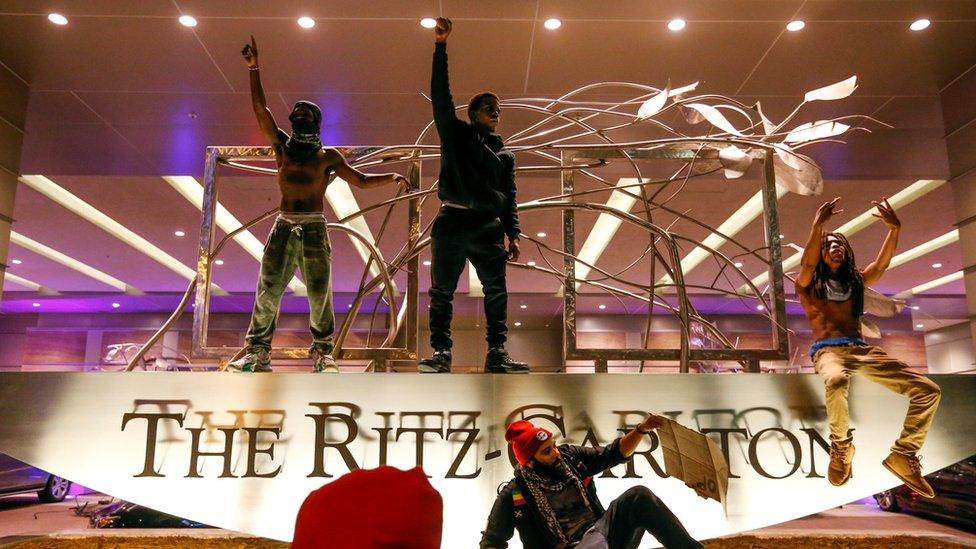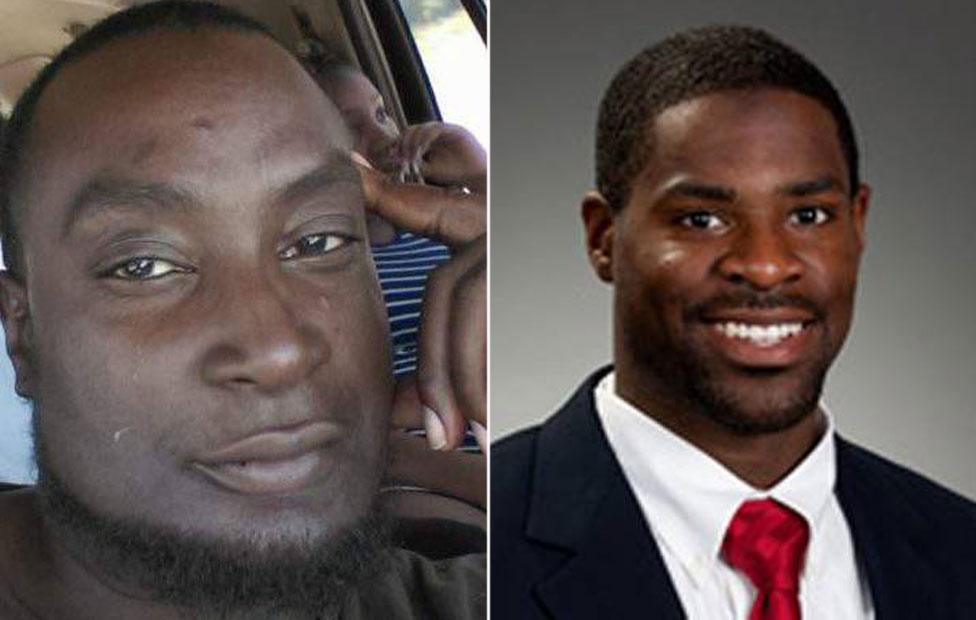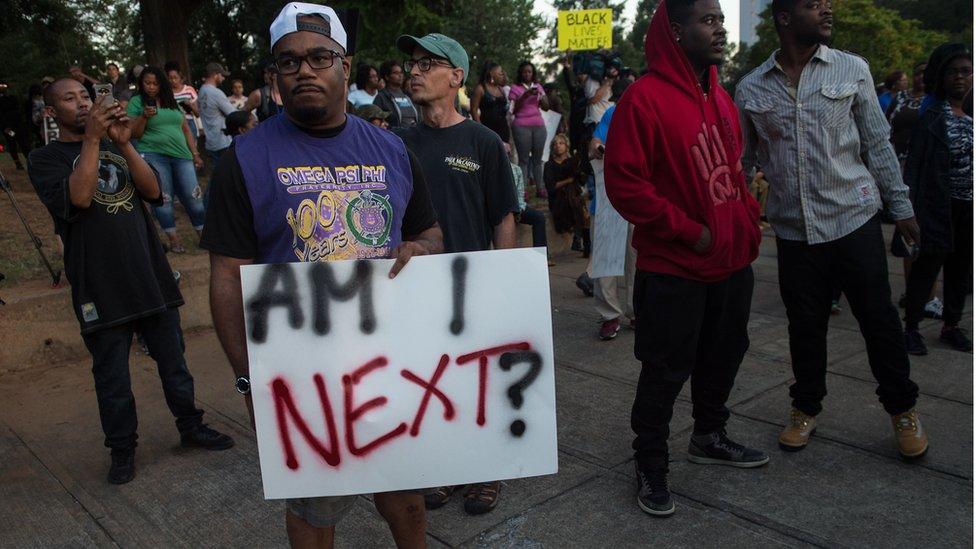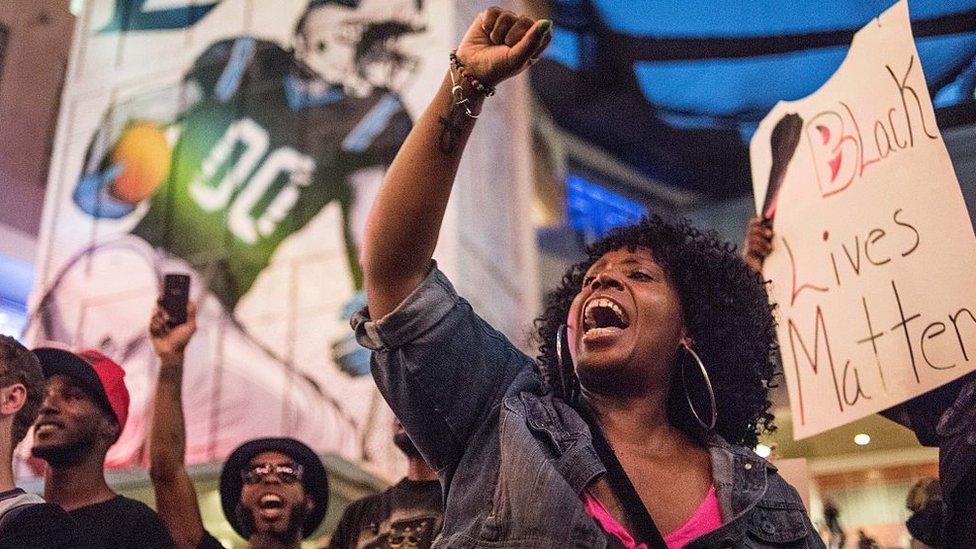Charlotte: City's race riots years in making
- Published

Despite the killing of an unarmed black man in 2013 sparking protests, Charlotte had avoided large-scale unrest - until now
The violence that erupted in North Carolina's largest city this week following the fatal police shooting of a black man is the result of racial tensions that have been bubbling under the surface for years.
Charlotte, an affluent city of 827,000 that is the second largest financial services centre in the US after New York City, is known as the banking capital of the South.
Major firms including the Bank of America and Wells Fargo told their thousands of employees to take the day off on Thursday amid the clear-up from a second night of violence.
Despite the banking wealth, the city has a stark racial income gap, with 60% of white households making more than $60,000 a year, while 70% of black households earn less than that, according to the Charlotte Observer.
The population here is 35% black and has, like many other American cities, grappled with high-profile cases of police violence against black men in recent years.
In 2013, white police officer Randall Kerrick was charged with voluntary manslaughter after shooting dead Jonathan Ferrell, a 24-year-old unarmed black man and former college football star who was looking for help after a car accident.

Keith Lamont Scott (L) was shot by Officer Brentley Vinson (R)

Protesters say tensions have lingered under the surface in Charlotte
The case was dropped last year, external after a jury could not reach a decision, and the city of Charlotte reportedly paid $2.25m to settle a lawsuit with Mr Ferrell's family.
It also paid almost $180,000 to Mr Kerrick, most of it for back pay, unused holiday days and legal fees, external.
While the case sparked some protests, until now Charlotte has avoided the kind of unrest seen in other US cities like Ferguson, Missouri, over police killings of black men.

The city is a major banking and financial centre
Still, local activists say an abiding sense of injustice and anger over Mr Ferrell's death played some part in the reaction to Tuesday's shooting.
Blanche Penn, an activist, said communities in the North Carolina city were "tired of people, especially police, killing our black men".
"Charlotte has always been quiet. But now it's time to be loud," she said.

People are "tired of talking and candlelight vigils," one activist says
Some commentators, however, have pointed out that not only is Charlotte police chief Kerr Putney an African-American, so is Brentley Vinson, the officer who has been placed on leave for killing Keith Lamont Scott.
Others who say they witnessed the shooting accuse police of lying, both about who killed 43-year-old Mr Scott and the circumstances surrounding Tuesday's shooting.
This alternative narrative has caught on in the mostly black neighbourhood where Mr Scott died.
One woman who claims she saw the shooting even disputes it was Mr Vinson who pulled the trigger.
"A white officer with a bald head shot that man," said Taheshia Williams.